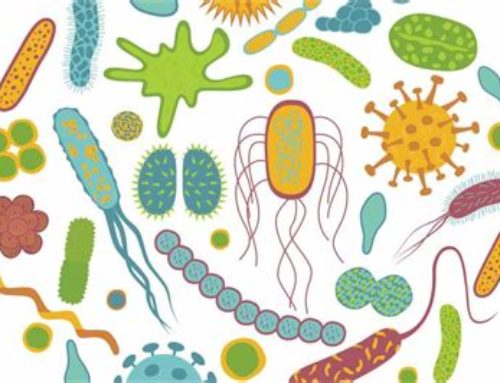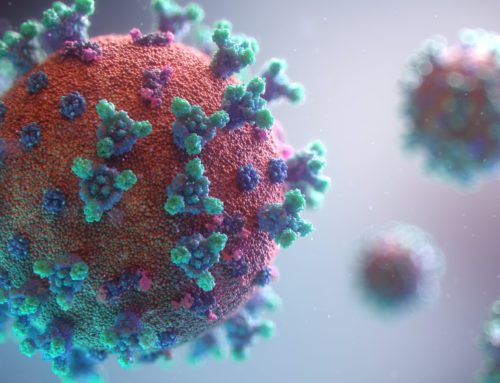By Karen McElroy BA, BHSci (Nat), MNHAA
Naturopath, Nutritionist & Medical Herbalist
There has been lots of attention given to vitamin D lately – with major research pointing to vitamin D deficiency and its role in a host of disorders including cancer, infertility, MS and even obesity. For many years we have been aware of how over-exposure to the sun contributes to skin cancers – with the resultant campaign to ‘slip, slop & slap’. In light of the new research, there is now much questioning about whether the “sun-smart” message has gone too far, with many people fanatically avoiding exposure to the sun and also overusing sunscreen.
 This has lead to the body having little opportunity to make vitamin D and thus deficiencies are now widespread. It is no longer acceptable to assume that because we live in a sunny climate that we automatically get enough sun to ensure adequate vitamin D levels. It is now estimated that many people have some form of vitamin D deficiency, not just the high risk groups. We now spend far less time outdoors, with many people being indoors much of the day or avoiding the sun for fear of skin cancer.
This has lead to the body having little opportunity to make vitamin D and thus deficiencies are now widespread. It is no longer acceptable to assume that because we live in a sunny climate that we automatically get enough sun to ensure adequate vitamin D levels. It is now estimated that many people have some form of vitamin D deficiency, not just the high risk groups. We now spend far less time outdoors, with many people being indoors much of the day or avoiding the sun for fear of skin cancer.
Vitamin D is formed in the skin on exposure to sunlight or it can also come from the diet. Being a fat-soluble vitamin it is only present in the fatty portion of foods. So people on low fat diets will directly limit their intake of both vitamin D and other fat-soluble vitamins. This also applies to people with digestive disorders or those on drugs that inhibit fat absorption.
Good sources of vitamin D rich foods are liver, fatty fish especially cod liver oil, eggs and butter. Remember that eggs need to be free range, as chickens require sunlight on their feathers to make vitamin D.
Other people at higher risk of deficiency are people with dark skin who need much more sun exposure to make adequate amounts, the elderly and fair skinned people who avoid the sun. Babies and children can be at risk and new USA guidelines now recommend that vitamin D supplements be given to all infants because it is so important.
Vitamin D has perhaps been misnamed historically as a vitamin as we now know that it works much more like a hormone. Some people will be aware of the role that Vitamin D has in ensuring strong bones and how it can be used to treat rickets (weakened bones). However, vitamin D actually forms a potent hormone-like agent that is involved in growth, repair and maintenance of many tissues and targets more than 200 genes. The beneficial effects that vitamin D can provide are far reaching. In one research paper, there was a dramatic reduction in cancer rates when people took a vitamin D supplement. Thus, while we are told by some experts to use sunscreens to prevent skin cancer, many others are now arguing that slapping on sunscreen actually contributes to far more cancer deaths than it prevents, due to the lack of this vital vitamin production. More than 16 different cancers have been linked to vitamin D deficiency including breast, prostate, lung, skin, colon and lymphoma.
One Harvard researcher found that vitamin D may prevent as many as 30 deaths for each death caused by skin cancer. The mechanisms by which vitamin D reduces your risk of cancer are fairly well understood. They include enhancing calcium absorption, reducing metastasis or cancer spreading, inducing cell differentiation and increasing cancer cell death.
But it is not just cancer that appears to be linked to vitamin D status. Other studies have sperm abnormalities linked to vitamin D deficiency and vitamin D deficiency in pregnancy has been found to effect foetal brain development and increases the risk of behavioural problems, schizophrenia and multiple sclerosis later in life.
So the advice we are now getting is that we need adequate sun exposure to make optimal levels of vitamin D for long term health. The intensity of the sun varies with the seasons, so our need for sunshine must vary also. Most people will need 10-15 minutes of sun exposure during the middle of the day on face and upper limbs 4-6 times a week in summer and around 30 minutes in winter. More may be needed for dark skinned and elderly people and supplements are often necessary to correct deficiencies.
We still need to be very sensible in the sun and avoiding getting sun burnt. Sun burn is very damaging and is linked to skin cancer. Sunscreen, hats and covering up is still prudent when sun exposure will extend beyond 15-20 minutes at a time or the UV index is moderate or high. But perhaps spending a bit more time outdoors (without sunscreen) a few times a week, may offer much more for our health than a rosy glow.
By Karen McElroy




Leave A Comment